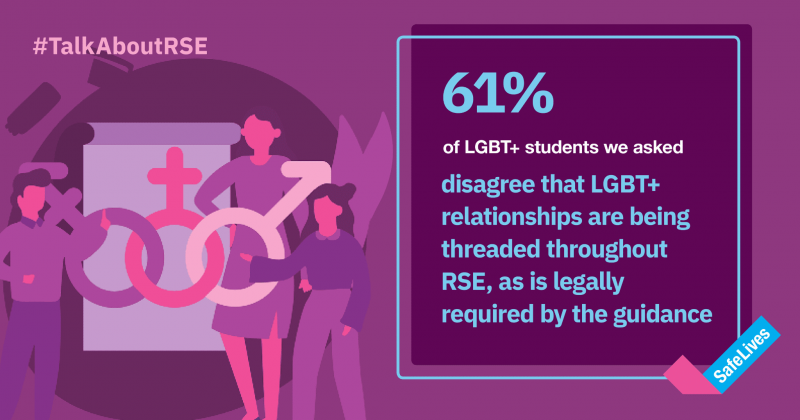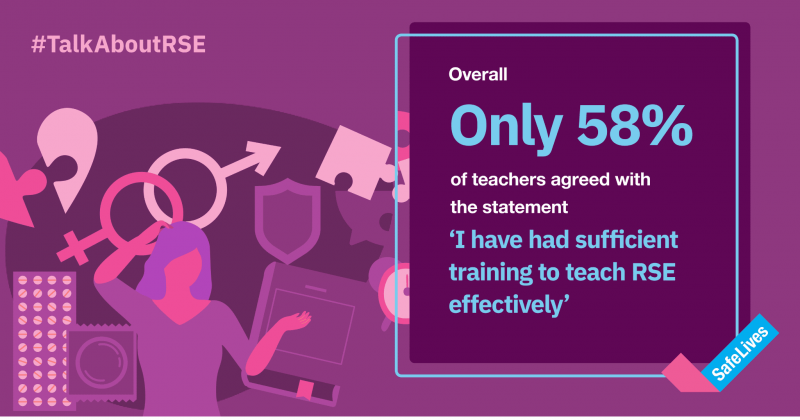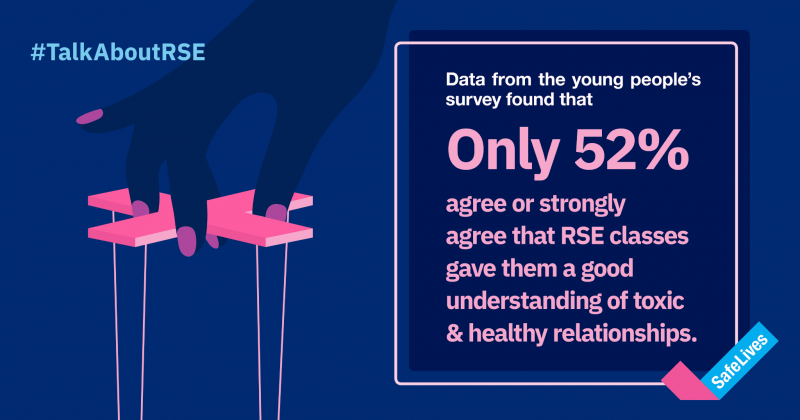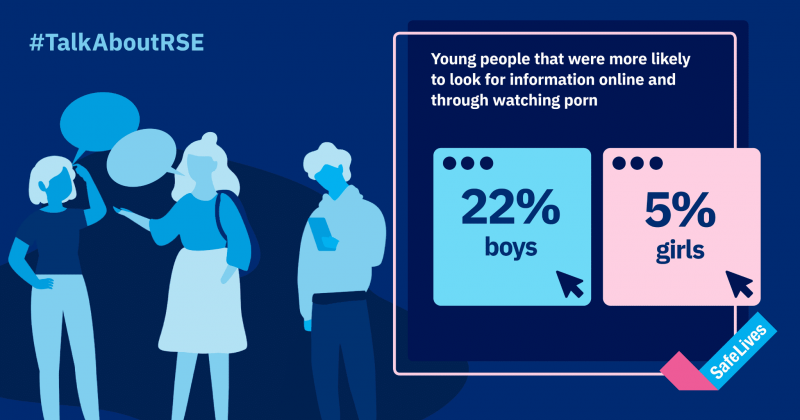“I love it, but I wish it was taken more seriously”
An exploration of Relationships & Sex Education in schools
At SafeLives, we are passionate about stopping abuse before it starts. Relationships & Sex Education (RSE) classes are a unique opportunity to give young people, often engaging in their first intimate relationships, the right knowledge and support to navigate those relationships safely & healthily.
For the first time, delivery of relationships education is now a statutory requirement in school settings in England, and the curriculum itself received its first update in twenty years.
This research, funded by the Treebeard Trust, explores the experiences of both the teachers involved in interpreting and delivering the curriculum, and the young people receiving it.
SafeLives heard from more than 1,000 young people and over 60 teachers in secondary schools across England – through a series of surveys, interviews and focus groups. Our key findings reveal significant gaps in the delivery and quality of statutory RSE classes.
Read the report: 'I love it - but wish it were taken more seriously' - exploring Relationships & Sex Education in schools
Key Findings
Young people are not learning enough about harmful relationships and how to seek help:
-
Only 46% of students feel confident about who to talk to if they or someone they know is experiencing abuse.
-
Just 24% of young people recall being taught about ‘coercive control’ in RSE classes and as little as 13% believe this topic was taught well.
LGBT+ students are being left behind:
LGBT+ students are receiving less Relationships and Sex Education than their heterosexual peers. SafeLives data suggests they feel significantly less comfortable, less confident about where to go for support about relationship or sexual abuse; and a notably smaller proportion have a strong understanding of toxic and healthy relationships.

The majority of LGBT+ students (61%) disagree that LGBT+ relationships are being threaded throughout RSE, as is legally required by the guidance.
One expert, who works with children with special educational needs and disabilities (SEND), highlighted a tendency by teachers to ‘infantilise’ disabled students in relation to their sexual orientation, including assuming Heterosexuality.
Boys feel pressured by gendered norms, less able to express themselves and are turning to the internet for information about sex and relationships:
Boys told researchers they are facing pressures to ‘man up,’ to conceal emotions and to refrain from asking for support.
-
Only half (54%) of young people surveyed have been taught about gender roles and gender equality.
-
27% of boys go online for information about relationships and sex, compared to 19% girls.
-
22% of boys look for information through pornography, compared to 5% of girls.
Young people want much more from their RSE classes:
Young people told SafeLives that they want more from their Relationship and Sex Education classes. Students want ‘more relevant examples’ (47%), ‘more open discussions’ (44%) and ‘more regular classes’ (42%).
Young people expressed a desire for discussion-based activities and practical, relatable RSE - including more ‘how to’ conversations, such as: ‘how to break up with someone without hurting them’ and ‘how to communicate consent.’
One focus group concluded that learning about consent from a younger age, not necessarily sexual consent, but personal boundaries and how to read social cues - could help prevent sexual assault.
Young people want discussions on RSE to be normalised. They’re aware of the taboo nature of the subject and can see that some teachers are not trained and not comfortable.
Teachers need training, resources and time:
Teachers and experts told SafeLives that time, resources and school prioritisation presented major barriers to effective delivery.

SafeLives found large inconsistencies in how different schools prioritise RSE, some value the subject much more than others, and this impacts the quality of RSE students across England receive.
The title of the report is based on this feedback shared by one teacher:
“I love it - but wish it were taken more seriously by my school. They get two hours a year in an assembly format.”
Recommendations:
SafeLives is calling for RSE guidance to place more emphasis on intersectionality and identity – recognising how the complexities of young people’s lives impacts their relationship with themselves and others.
LGBT+ relationships should be discussed at an earlier stage in young people’s education and there should be a greater focus on engaging with young men and boys from an early age about gender norms, masculinity and inequalities - in a way that is tailored and works for them.
We want to see schools across the country embedding a whole-school approach to RSE, where all members of a school community - students, staff, parents and governors - ensure RSE is prioritised and teachers are provided with the resources and time they need to build trust with their students.



